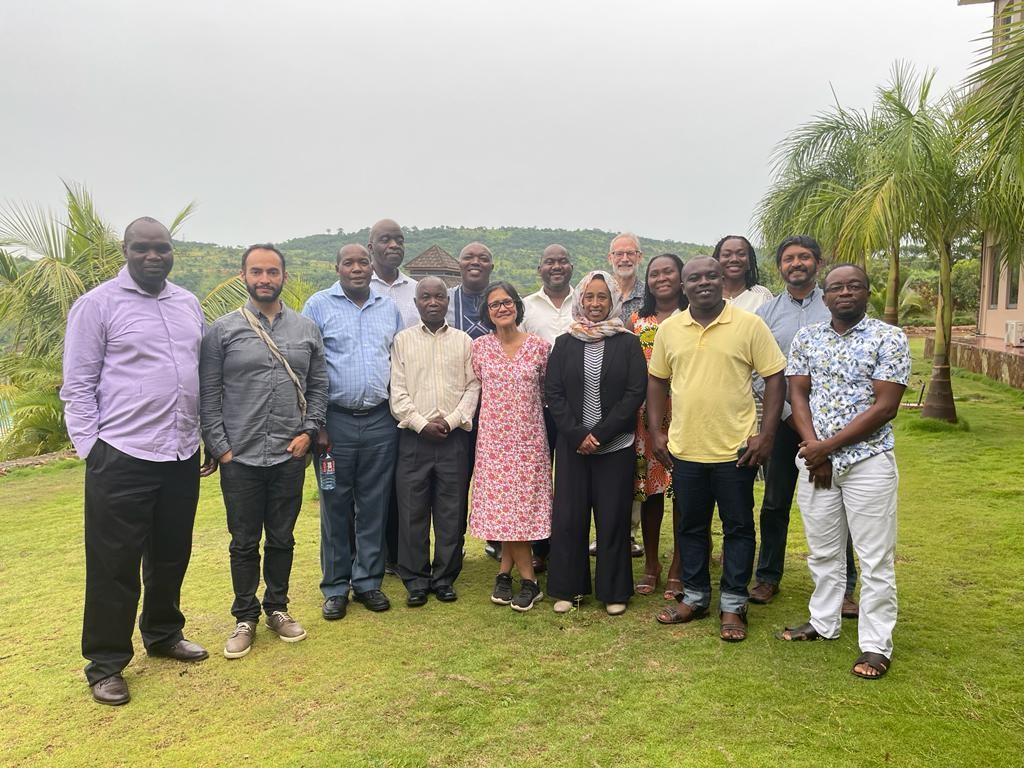Taking stock, looking forward

It was the first in-person meeting of ACEIR researchers from the universities of Ghana, Legon; Nairobi, and Cape Town since 2019 due to disruptions caused by the COVID-19 pandemic. The mood was jubilant and filled with excitement to be together again under the new ‘normal’. Joining the team during the second day of the six-day workshop was Prof Prof Ernest Aryeetey, who presented the African Research Universities Alliance strategic plan for 2022 – 2027 and explained how that aligns with the African Union’s Agenda 2063.
In another workshop session, the team was joined by two Deputy Vice-Chancellors (DVCs) for Research: Prof Felix Ankomah Asante from the University of Ghana, Legon; and Prof Sue Harrison, University of Cape Town. The DVCs were invited to speak to challenges and highlights of ACEIR’s set-up phase, and their respective institution’s vision for ARUA and how that fits with their institution’s own strategic plans. Their University of Nairobi counterpart, Prof Margaret Hutchinson, was unable join the event.
Representatives from strategic partner institutions also participated in the conversation. They included the head of the Agence Française de Développement research programmes on inequality, poverty, and international migration, Dr Anda David; Prof David Gordon from the Bristol Poverty Institute (BPI), University of Bristol and a colleague, Dr Lauren Winch, Specialist Research Institutes Manager; and Prof Mike Savage from the London School of Economics and Political Science.
The workshop was extremely productive, and the agenda included research themes, data availability, skills training, governance, fundraising, succession planning, and career path development for younger researchers. There was also a discussion on the linkages between academic research and policymaking, and how ACEIR could increase the social impact of its work.
One of the key messages that emerged from the concluding session was how much everyone enjoyed having in-person workshops again. The emergence of virtual meetings during the pandemic was invaluable given the circumstances, but they remain poor substitutes for relationship building and collectively engaging with complex problems and creative processes.
